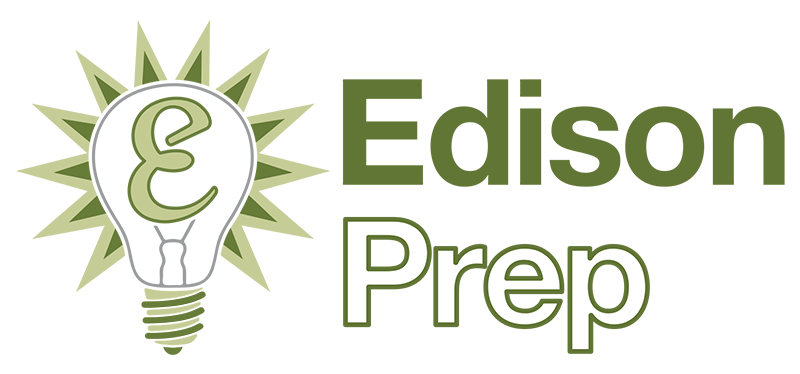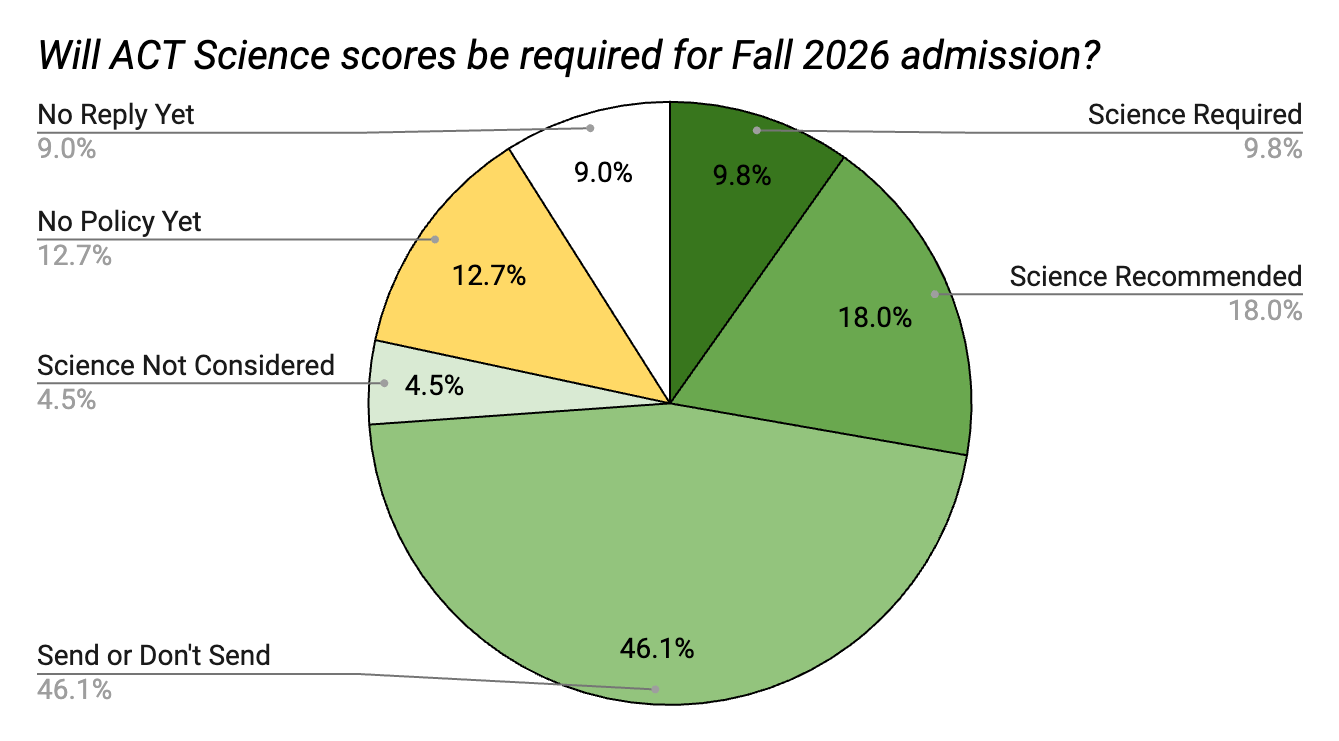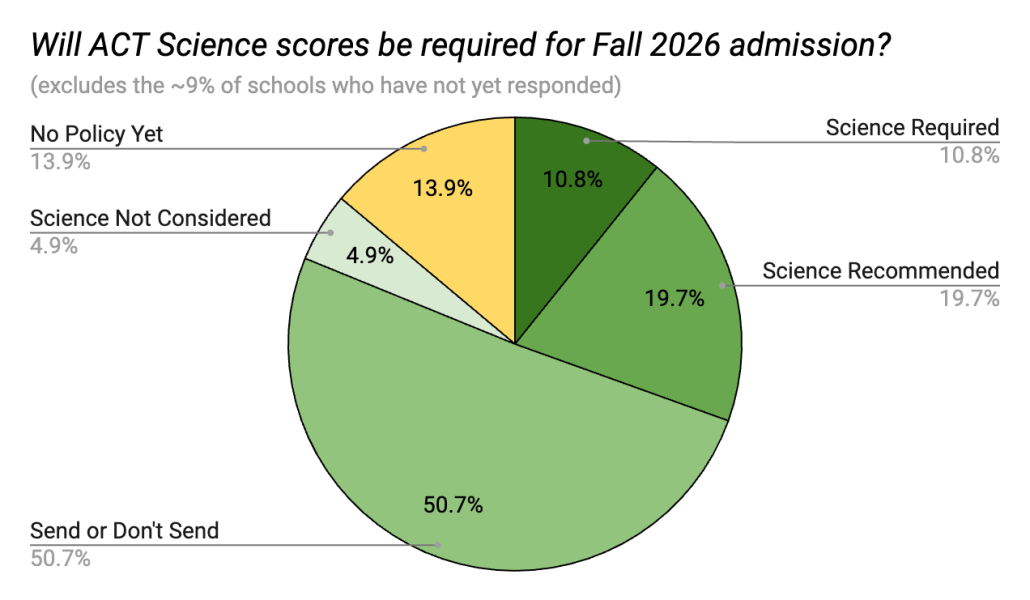© Copyright 2010-2024 Edison Prep. All rights reserved. *ACT is a registered trademark of ACT, Inc., SAT and AP are registered trademarks of the College Board, PSAT/NMSQT is a registered trademark of the College Board and National Merit Scholarship Corporation; and none were involved in the production of, or endorses, Edison Prep.
Edison Prep’s founders, Brian and Silvia Eufinger, were one hour into a family Disney World vacation when news of upcoming changes to the ACT came out. Their cell phones began buzzing incessantly. While biding their time in a Magic Kingdom line, Brian registered the domains scienceoptional.com and isscienceoptional.com, knowing ACT’s news could cause an upheaval in the college admissions process.
The first ACT in 1959 was a four-part exam: English, Mathematics, Social Studies, and Natural Sciences. The ACT has had virtually no changes in the 60+ years since, compared to the regular changes to the SAT every 5-10 years. Brian and Silvia wondered: realistically, would elite universities, STEM programs, and competitive merit scholarships really cease to consider the Science section in their admissions processes? Especially after what we’ve observed regarding the word “optional” during the ostensibly “test optional” years where optional meant anything but for most top schools’ admission or merit aid awards?
So, we asked them.
We contacted more than 240 universities in the US regarding their ACT Science policy for the Fall 2026 admissions cycle and beyond, and thus far, we’ve received replies from over 90% of them:
Of the 223 universities that responded, less than 5% indicated the Science section would not be considered. Almost 30% indicated Science would be required or was “strongly recommended.”
Some schools answered the phone and said “we’re an engineering focused STEM school, of course we will want the science section for those who send their ACT (instead of SAT).” Some test-optional schools like Lehigh University stated that if students choose to submit ACT scores, they must submit all four section scores—and some schools, like Northeastern University, will manually calculate their own Composite score as an average of students’ English, Math, Reading, and Science sections. Given the near-monopoly that software solutions like Slate have on US colleges, it’s easy for a school to set up the Slate application to superscore or not, or to use science or not, and have the software manually calculate whatever each university desires. Plus, a majority of schools allow students to self-report their scores, making it easy for schools to superscore or not, to use science or not.
Notably, about 13% have not yet declared a policy for Fall 2026. Gonzaga University’s representative stated they will need to do “research on the shift, listen to experts in the field, and explore how this impact will impact our admission policies.” Yet in the same message, they expressed that they “recommend that [students] take the test with the Science section. Given that they are likely to be applying to multiple colleges and these colleges may have different approaches, it never hurts to have that score in their back pocket just in case.” This matches Oklahoma State’s attitude: “My advice, since all these changes are new and each college may handle it differently, is to have your children take the test with the science section so as to cover all bases.” Carnegie Mellon has not finalized their decision regarding the Science section, but stated they would “hope to see the Science section for students applying to a STEM-related program moving forward,” and that they “may indeed end up requiring it.” Likewise, Drake University’s representative replied, “If it turns out they have a fantastic score, they’ll see even more scholarships come their way from schools that give a larger emphasis to ACT scores.”
Even a send-or-don’t-send school like Binghamton University replied, “If [students] are considering STEM majors, I would strongly recommend that they take the version with Science at least once… it will be good to have at least one score that includes the Science section.” (An important note: Of the 113 schools with a ‘send-or-don’t-send’ policy, 101 of those are test-optional for SAT/ACT anyway—so they are likely matching that language.)
Our stance at Edison Prep?
Skipping the Science section on test day may well be the most penny-wise, pound-foolish decision most ACT testers could make.
The worst feeling in the world will be for students whose college lists change, or whose schools’ policies change, and those who thought they were done testing early in their junior year now have to re-study and re-test just for the Science section—after many months of standardized testing atrophy!
We’re actively updating the data above as we reach out to more schools’ admissions offices. But the message is clear: If you’re taking the ACT, take the Science section. For any students applying to 10-12 universities, the odds that none of the 12 will require or recommend the Science section score are so low that they may as well be zero. And with thousands of dollars in scholarships on the line, we don’t recommend taking the chance!
Families
If you happen to go on a college tour or receive an email with a clear, updated ACT Science policy and want to pay it forward, feel free to pass it along! This page will be a living, breathing resource as Science policies shift.
If your student needs help preparing for the SAT or ACT, please reach out at 404-333-8573, email [email protected], or read more at www.edisonprep.com/start/!











